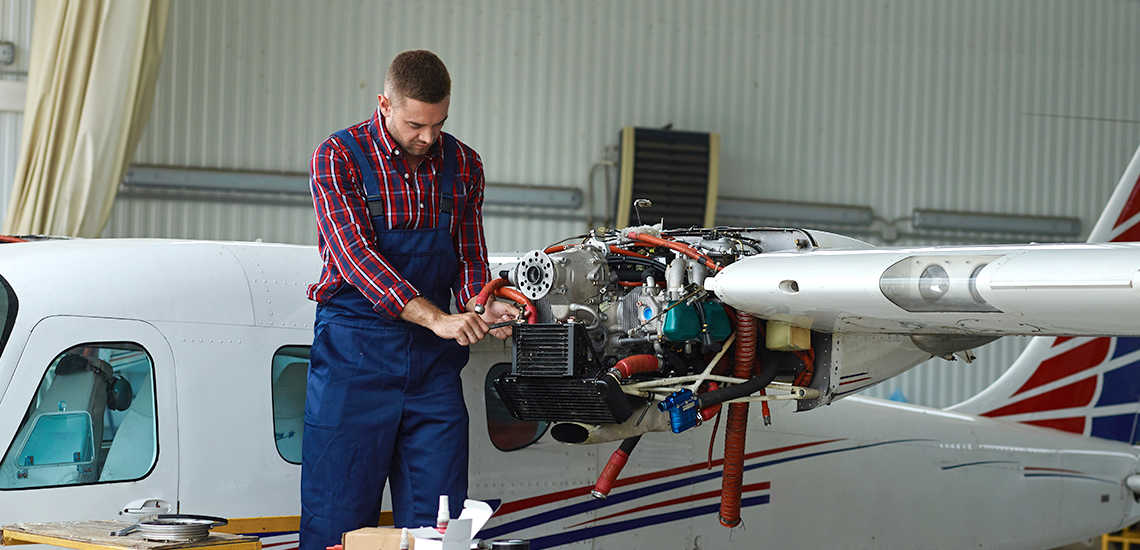
Our Aviation Industry training is your path to a stable and rewarding career in Japan’s aviation sector. With a focus on SSW preparation, this program builds the skills needed for Airport Ground Handling and Aircraft Maintenance. You’ll gain hands-on experience to confidently support essential aviation operations, assuring safety and smooth service for passengers and crew.
What You’ll Do
Your roles will include:
Ground Handling:
- Help guide aircraft on the ground using vehicles and signals to ensure safe taxiing and parking of planes.
- Move and manage luggage and cargo from check-in to the aircraft, and then to the destination.
- Safely load and unload cargo into the plane’s cargo hold.
- Clean the aircraft’s interior and exterior, including seats and restrooms, to keep the cabin comfortable and welcoming.
Aircraft Maintenance:
- Carry out essential checks and fixes between flights, supervised by experts.
- Help inspect and maintain the aircraft every 1–1.5 years.
- Maintain critical parts like engines, landing gear, and instruments.
Who Can Apply?
- Those who have passed the SSW aviation exam, which tests basic skills for aviation work in Japan.
The SSW Aviation exam includes both written and practical tests, giving you the qualifications needed to work in Japan’s aviation sector.
Exam Details:
- When: Available year-round
- Where: Various locations worldwide
- How to Apply: Online reservation
- Test Type: Computer-Based Testing (CBT)
Ready to start your journey in Japan’s thriving aviation industry? Join our SSW Aviation Industry Vocational Training program today and take the first step toward a rewarding career!
FAQ - Aviation Industry
Is there a demand for foreign workers in Japan's aviation industry?
Yes, Japan now accepts foreign workers to meet its rising demand in the aviation industry. This need arises from a labor shortage caused by an aging workforce and fewer domestic workers entering the field.
What are the main duties under the SSW in Japan's aviation industry?
SSW workers in the aviation industry are mainly involved in ground handling and aircraft maintenance. Ground handling includes tasks such as aircraft movement support, baggage and cargo handling, and cleaning. Maintenance tasks involve operational checks, airframe inspections, and component maintenance.
What types of visas are available for foreign aviation workers?
Foreign workers can apply for two main visa types: the Technical Intern Training Program visa and the SSW (Specified Skilled Worker) visa. The SSW visa allows job changes, long-term stay, and family accompaniment under certain conditions, whereas the Intern visa focuses on skill training and does not permit job changes.
How do the Technical Intern Training Program and SSW Program differ?
The Intern Program is intended for skill acquisition and has a maximum stay of five years, after which interns return home. The SSW Program is designed to address Japan's labor shortages, allowing job flexibility, and in some cases, long-term residency.
Can Technical Interns transition to the SSW Program?
Yes, if you've completed the Intern Program, you can move to SSW. Also, some parts of the skill test will be waived because of your previous experience, making the transition easier.
What salary and benefits are available for aviation SSW workers in Japan? While average monthly salaries for SSW workers in aviation aren’t disclosed, the workers receive social insurance, healthcare, and pension benefits. With experience, workers often see pay raises which makes the SSW program more appealing for career growth.
What Japanese language tests are required for SSW in aviation?
The minimum language qualification for SSW in Aviation is either the Japanese Language Proficiency Test (JLPT) N4, or the Japan Foundation Test for Basic Japanese (JFT-Basic) A2. The applicants must pass one of these exams to prove basic conversational abilities and text comprehension.
What does the skill evaluation test for aviation SSW consist of?
The aviation SSW exam, run by JASPA, covers basic knowledge needed for aviation work. It includes both written and practical tests and is considered of intermediate difficulty.
Service Benefits
No FAQs available for this training.




